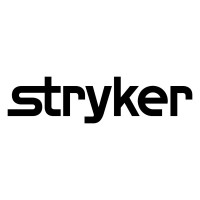
Solventum
At Solventum, we enable better, smarter, safer healthcare to improve lives. We never stop solving for you.



At Solventum, we enable better, smarter, safer healthcare to improve lives. We never stop solving for you.

Stryker is a global leader in medical technologies and, together with our customers, we are driven to make healthcare better. We offer innovative products and services in MedSurg, Neurotechnology and Orthopaedics that help improve patient and healthcare outcomes. Alongside its customers around the world, Stryker impacts more than 150 million patients annually. More information is available at stryker.com and careers.stryker.com. Facts: ● 2024 Sales: $22.6 billion ● Industry: Medical Instruments & Supplies ● Employees: 53,000 worldwide ● 40 years of sales growth leading up to 2020 ● 44+ Manufacturing and R&D Locations Worldwide ● $1.5 billion spent on research and development in 2024 ● ~14,200 patents owned globally in 2024 ● Products sold in ~75 countries ● Fortune 500 Company ● 7 consecutive years as one of Fortune's World's Best Workplaces Stryker’s social media community guidelines: https://www.stryker.com/content/m/legal/social-media-community-guidelines/en/index.html Notice Regarding Employee Conduct on Facebook/LinkedIn Meta/LinkedIn does not permit employers to verify or validate “employees” in the (META: “Works at” LinkedIn: “Experience”) section of users’ profiles. Please be aware that the views expressed by individuals on their personal accounts and do not necessarily represent the views of our company. If you encounter any issues with a person claiming to be our employee, we recommend using the “Report Profile” feature. If you’d like to report concerns to our Ethics Hotline, you may do so at: https://app.convercent.com/en-us/LandingPage/b6bb4e84-9fcb-ea11-a974-000d3ab9f296
Security & Compliance Standards Overview












No incidents recorded for Solventum in 2025.
No incidents recorded for Stryker in 2025.
Solventum cyber incidents detection timeline including parent company and subsidiaries
Stryker cyber incidents detection timeline including parent company and subsidiaries
Last 3 Security & Risk Events by Company
Angular is a development platform for building mobile and desktop web applications using TypeScript/JavaScript and other languages. Prior to versions 19.2.16, 20.3.14, and 21.0.1, there is a XSRF token leakage via protocol-relative URLs in angular HTTP clients. The vulnerability is a Credential Leak by App Logic that leads to the unauthorized disclosure of the Cross-Site Request Forgery (XSRF) token to an attacker-controlled domain. Angular's HttpClient has a built-in XSRF protection mechanism that works by checking if a request URL starts with a protocol (http:// or https://) to determine if it is cross-origin. If the URL starts with protocol-relative URL (//), it is incorrectly treated as a same-origin request, and the XSRF token is automatically added to the X-XSRF-TOKEN header. This issue has been patched in versions 19.2.16, 20.3.14, and 21.0.1. A workaround for this issue involves avoiding using protocol-relative URLs (URLs starting with //) in HttpClient requests. All backend communication URLs should be hardcoded as relative paths (starting with a single /) or fully qualified, trusted absolute URLs.
Forge (also called `node-forge`) is a native implementation of Transport Layer Security in JavaScript. An Uncontrolled Recursion vulnerability in node-forge versions 1.3.1 and below enables remote, unauthenticated attackers to craft deep ASN.1 structures that trigger unbounded recursive parsing. This leads to a Denial-of-Service (DoS) via stack exhaustion when parsing untrusted DER inputs. This issue has been patched in version 1.3.2.
Forge (also called `node-forge`) is a native implementation of Transport Layer Security in JavaScript. An Integer Overflow vulnerability in node-forge versions 1.3.1 and below enables remote, unauthenticated attackers to craft ASN.1 structures containing OIDs with oversized arcs. These arcs may be decoded as smaller, trusted OIDs due to 32-bit bitwise truncation, enabling the bypass of downstream OID-based security decisions. This issue has been patched in version 1.3.2.
Suricata is a network IDS, IPS and NSM engine developed by the OISF (Open Information Security Foundation) and the Suricata community. Prior to versions 7.0.13 and 8.0.2, working with large buffers in Lua scripts can lead to a stack overflow. Users of Lua rules and output scripts may be affected when working with large buffers. This includes a rule passing a large buffer to a Lua script. This issue has been patched in versions 7.0.13 and 8.0.2. A workaround for this issue involves disabling Lua rules and output scripts, or making sure limits, such as stream.depth.reassembly and HTTP response body limits (response-body-limit), are set to less than half the stack size.
Suricata is a network IDS, IPS and NSM engine developed by the OISF (Open Information Security Foundation) and the Suricata community. In versions from 8.0.0 to before 8.0.2, a NULL dereference can occur when the entropy keyword is used in conjunction with base64_data. This issue has been patched in version 8.0.2. A workaround involves disabling rules that use entropy in conjunction with base64_data.